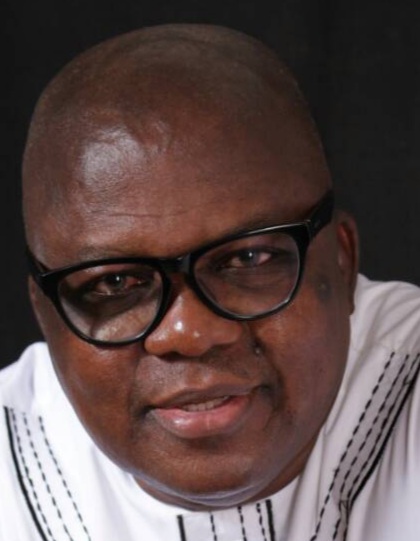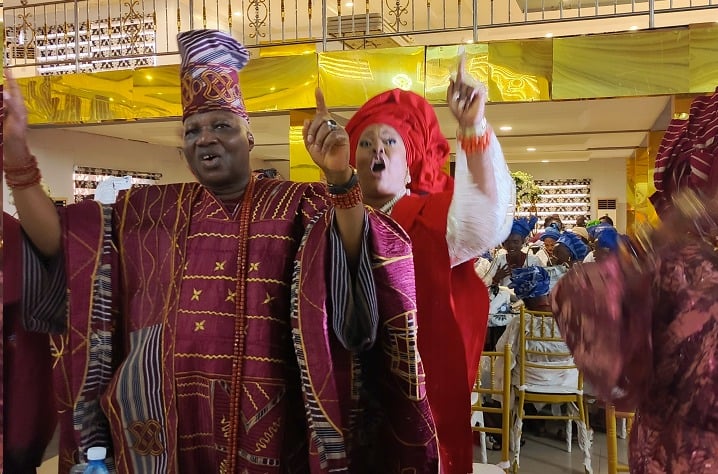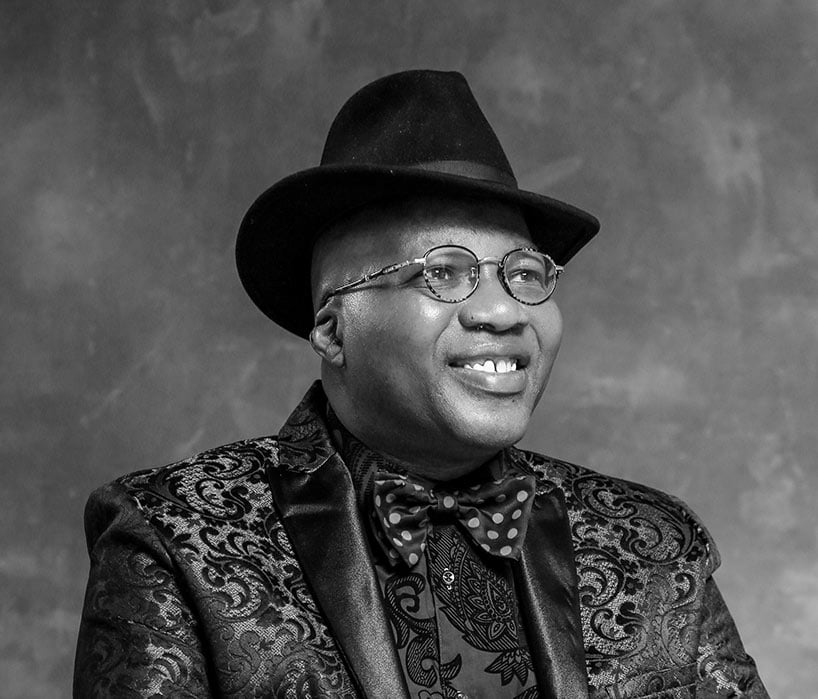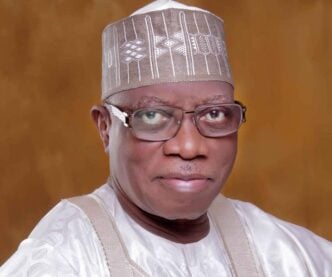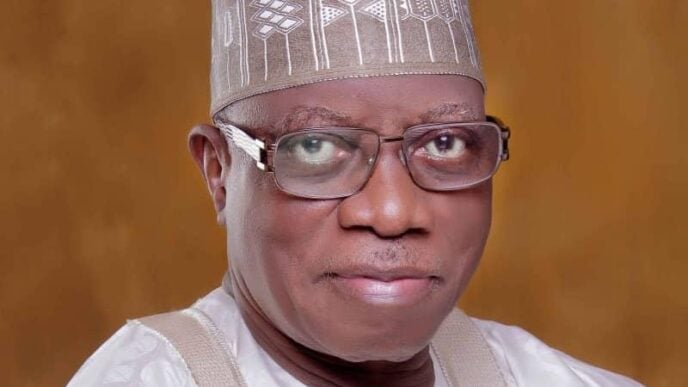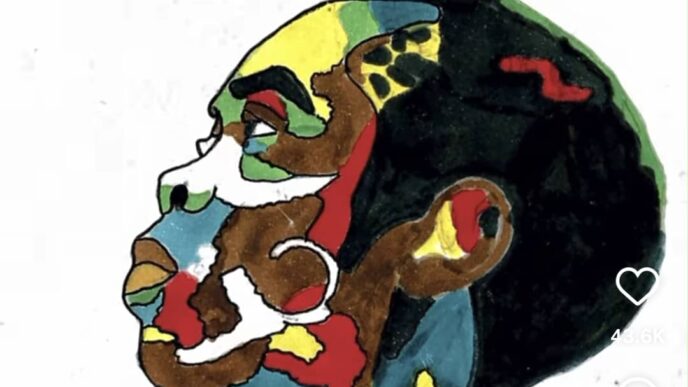Asiwaju Yinka Fasuyi and Olubisi Fasuyi
The vibrant allure of Ilesa extends beyond its legendary gold mines and rich deposits.
It’s a place steeped in history, known as a cradle for the spiritual titans of Nigeria’s apostolic movement. Figures like Apostle Joseph Ayo Babalola, the unforgettable leader of the Christ Apostolic Church (CAC) who lived from April 25, 1904, to July 26, 1959; Prophet David Olu Babajide, Babalola’s trusted second-in-command and General Evangelist of CAC (1906-2012); and Prophet Timothy Obadare, the visionary founder of the World Soul Winning Evangelical Mission (WOSEM) (1930-2013), who either hailed or were based in this remarkable community.
This is not to mention influential leaders like Pastor Enoch Adejare Adeboye, the esteemed General Overseer of the Redeemed Christian Church of God, and Pastor William Folorunso Kumuyi, the General Superintendent of Deeper Christian Life Ministry.
Beyond its revered figures, Ilesa is distinguished by its resilient populace, renowned for their unwavering spirit and sense of community, which earned them the nickname Osomaalo. Their commitment to the Omoluwabi ethos shines brightly. Today, Ilesa is also emerging as a vibrant hub for music, enriching the cultural tapestry of the region.
Advertisement
Last Sunday, the city shimmered with the vibrant energy emanating from the performance of Prince Abiodun Lufadeju, a composer and director of uncommon hue, and his orchestra. The air, thick with anticipation, crackled as the final preparations were made at the Heringan Hotel in the Imo area of the city. Banners adorned with Asiwaju Yinka Fasuyi’s regal image (with Lufadeju’s inset) fluttered in the gentle breeze outside the hall. Inside, the aroma of good food was sizzling from commissioned caterers, mingled with the sophisticated scent of imported perfumes wafting from the crowd.
Regally seated at the high table, accompanied by a couple of clergymen, was Asiwaju Fasuyi, who was resplendent in his signature flowing agbada and towering cap of wine. The agbada was intricately embroidered with gold thread, his large presence commanding the ambience. Yeye Asiwaju of Ijesaland, Chief Dr Olubisi Fasuyi, was queenly in her champagne gold buba and iro with a wine coloured gele to match.
Surely, Ilesa had seen its share of celebrations but this was different. Not since the world converged at Ilesa on May 25, 2025, to celebrate the historic coronation of His Imperial Majesty, Owa Clement Adesuyi Haastrup, Ajimoko II as the 41st Owa Obokun Adimula and Paramount Ruler of Ijesaland, has the golden city seen anything like this.
Advertisement
This was Prince Abiodun Lufadeju, the quintessential music director and his ensemble of musicians, taking the stage with commanding presence, in honour of the Asiwaju of Ijesaland, on the third day of the 9-day programme of activities marking his 70th birthday.
Lufadeju started the show with a slow but captivating rendition of contemporary Christian hymns, gospel-centered lyrics, classics, solo soprano, and a couple of adaptations from George Frederick Handel, the German-British Baroque composer well-known for his operas, oratorios, anthems, concerti grossi, and organ concerti. The rendition of If God be with us…, another version of the Hallelujah Chorus, sent the audience screaming for more.
The orchestra swelled, a symphony of strings, horns, and traditional Yoruba percussion instruments. The music, which began subtly with a gentle caress of notes, became faster, a tempo that evoked the rolling hills surrounding Ilesa and the whisper of the Osun River. Then, it built.
The Prince, a whirlwind of passion, conducted the sessions with fervour. He wasn’t just leading the orchestra; he was channelling the sweet Holy Spirit through musical notes, weaving the celebration of joy and triumphs into the melodies. The music moved through the crowd like electricity, sparking joy, nostalgia, and pride.
Advertisement
A young woman, barely old enough to remember a time before economic hardship, closed her eyes and swayed to the rhythm, momentarily forgetting her worries. An elderly man, his face etched with the wisdom of generations, tapped his foot, recalling the days when Ilesa’s gold flowed freely. Even the hardened faces of the local security personnel softened, smiles gracing their lips.
Part 2 came with a breathtaking rendition of a traditional Yoruba praise songs. The Prince’s tenor voice, powerful and resonant, soared above the orchestra, his lyrics celebrating the resilience and beauty of the Ijesa people. The crowd erupted, singing along, clapping, and dancing, transformed into a single, unified entity bound by music and shared heritage.
Part 3 of the concert featured African classics, including works by Lufadeju’s father, lased with an enthralling fusion of classical technique with the soul-stirring rhythms of Yoruba heritage. The rendition of pieces like: Olorun t’o da awon oke igbani, Diro mo Jesu, Jesu mi seun, sent the celebrant and his wife, Yeye Asiwaju Dr Olubisi Fasuyi, singing and dancing rapturously.
Lufadeju, a master of his craft, left no one in doubt as to who was in charge as he switched easily to dance-hall music that sent many stomping their feet on the floor in their seats, with heads swaying rhythmically with the flow of music. Others, including the celebrant and his family, simply hit the dance floor. They were joined in a jiffy by scores of gaily dressed audience members. The hall was metaphorically set on fire when Lufadeju, the master director, yielded the stage for a fusion of Adamo and other African classics.
Advertisement
After an interlude of tributes, Part 4 sent the audience into a whirling euphoria as the concert hit the crescendo with the perfect delivery of Nipa Ife Olugbala, and three other titles, coasting home with the birthday song, Happy Birthday to You….
Throughout the night, the Asiwaju and his Family walked on air, enveloped in the rapture of joy. Still, in the spirit of the moment, he sent out some words of wisdom to Nigerians, organisations-spiritual and social, and all tiers of government in the country on the transformative powers of music.
Advertisement
This transformative power of music, Fasuyi posited, which, for centuries, formed an integral part of human culture, has a special place in people’s lives. Bringing it home, he said that when properly exploited, music has enormous powers to help mend minds on the bend, and generally help Nigerians fighting depression or suffering diverse mental health issues as a result of the prevailing economic crisis in the country.
Advertisement
“Music has great powers in its effects,” Fasuyi, Chairman/Founder of the Supreme Management Training and Consultancy Services Limited, declared. “It is therapeutic. When optimally harnessed, it has great potential to heal those Nigerians in depression occasioned by the struggling economy or causes that distress the soul.
“When people sing, or dance, sorrow flees. No song has sour taste. In Biblical times, David used the power of music to heal King Saul who was struggling with serious mental health issue. David used music to curry favour from God. Even after committing murder, and other sins, remorseful David sang high praises to God, and God not only forgave him, but God still maintained that David was a man after His heart.”
Advertisement
Fasuyi made the point more vividly as he went down memory lane to recall how music rescued him from looming failure in his undergraduate days at the University of Ibadan.
Economics, he said, was his favourite subject in secondary school and at advanced levels. He soared in the subject like an eagle. But when he got into the University of Ibadan to study economics, the tide changed. Economics, his first love, almost became his Achilles’ heel. Mathematics, a major component of his course of study, became so hard that it constituted a serious weakness and threat to his overall strength.
It would have led to his downfall, Fasuyi, then a party freak, confessed. But he discovered a potent weapon to fight the demon-music. He discovered and used the power of music to redeem the ugly situation.
“Economics was tough for me in the university,” Fasuyi emphasised. “But I found healing and an enduring solution in Chief Commander Ebenezer Obey’s music. Before reading, or attempting any problem, I would play Obey’s music, and pronto, the mathematical problem would be solved.”
Fasuyi added everything and advised “governments, organisaions-religious and social, to explore the power of music to encourage and motivate, by organising regular musical concerts.”
On health and other distressing situations, Fasuyi declared, “It is not every problem that is solved through medication. Music has the power to solve the most intractable of all issues, especially depression or mental health issues. That’s why I use this occasion to urge governments — both federal and at the sub-national levels-to invest more in music, and creative arts generally. They will be amazed at the results the efforts would produce.”
As the final notes faded into this night of high praise to the Most High God, a thunderous applause echoed through the Heringan Hotel hall. Prince Abiodun Lufadeju, sweat glistening on his brow, bowed deeply. He had not just performed; he had ignited a spark, rekindling the flame of pride and unity within the heart of Ilesa. The gold of Ilesa might be buried beneath the earth, but on that Sunday night, the true treasure – its vibrant culture and indomitable spirit – shone brighter than ever before.
